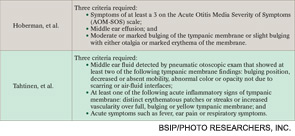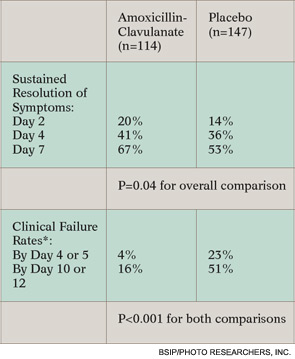Contrary to these findings, the new studies show that immediate treatment was associated with a significant benefit, both in resolution of symptoms and in rate of clinical failure in children with clearly defined AOM (see Table 2 on this page and Table 3 on p. 20).
Explore This Issue
April 2011
“These studies show a benefit of immediate antibiotic treatment in children under age two years with a quite certain diagnosis of AOM,” said Alejandro Hoberman, MD, chief of general academic pediatrics at Children’s Hospital of Pittsburgh of UPMC, and lead author of the Pittsburgh study. Prior to these studies, he said, the appropriate treatment strategy for young children with stringently defined AOM had remained unclear.
For Aino Ruohola, MD, PhD, of the department of pediatrics at Turku University Hospital in Turku, Finland, and the senior author of the Finnish study, the results mean that children with a certain diagnosis of AOM benefit from antibiotics. “However, those with otoscopic signs not definitely indicating acute otitis media should not receive antibiotics,” she said.
To Treat or Not: Still Some Gray
Although these studies clearly demonstrated that children with strictly defined AOM benefit from immediate antibiotics, they also showed that even some of these children get better without antibiotics. Another way to read the 45 percent treatment failure rate in the Finnish study for the children not receiving antibiotics, for example, is that 55 percent did not have treatment failure.
“The Finnish study emphasized that about one-half of the placebo group got better,” said Dr. Wei. “Both studies agree that the problem is you just don’t know who will end up being the half that get better without antibiotics.”
One area that may play into this issue is the appropriate use of analgesic agents. The 2004 AAP/AAFP guidelines strongly recommend the use of oral and topical analgesics for pain management in children with AOM.
Although both studies reported comparable use of these agents in both the treatment and placebo groups, not all patients were treated with these agents. Rather, both studies instructed parents to give pain medication on an as needed basis and to keep track of their use. The Finnish study reported an overall use in 84.2 percent of the children treated with antibiotics and 85.9 percent in the placebo group. The Pittsburgh study reported that the mean daily number of doses of acetaminophen administered was 0.37 and 0.43 in the treatment and placebo groups, respectively.

Leave a Reply